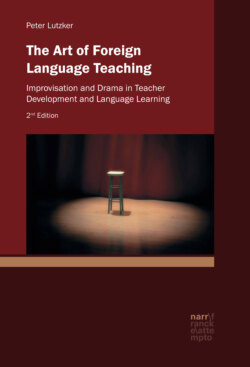Читать книгу The Art of Foreign Language Teaching - Peter Lutzker - Страница 50
На сайте Литреса книга снята с продажи.
4.8 External Validity: The Representative Nature of the Data
ОглавлениеIn qualitative research the issue of internal validity is generally considered to be more crucial than external validity, since the goal of external validity, i.e. that a research study could be exactly replicated in another context by different researchers and still elicit the identical results, is not generally the aim of most qualitative research studies. However, with respect to the clowning courses the broad spectrum of data in conjunction with the extensive possibilities of time and space triangulation make the issue of external validity a relevant consideration.
A crucial issue which bears examining in this context is whether the language teachers who took the clowning course were representative of Steiner School English teachers, or instead, an atypical group of Steiner School teachers who tended naturally to this type of artistic course. This question can first be considered on the basis of the responses from the English Fortnights and the Baltic Seminar in which all the participants had to take this course. In the case of the English Fortnight this did not lead to any significant differences in what they wrote in comparison, for instance, to the English Week in which participants had chosen to take this particular course. However, in the case of the Baltic Seminar it is clear in the responses that many of the participants had clear reservations and questions about the work at the beginning. In general, their responses indicate that they as a group also initially experienced the most difficulties in the course. Significantly, their responses at the end were among the most effusive. In the English Week, there were some participants who were familiar with the courses through the presentations at the end of previous years and who thus had an idea of what they were choosing and others who were there for the first time. There do not, however, appear to be any marked general differences in the final responses of these two groups. Thus, the reasons why teachers took the course do not appear to have influenced how they later viewed it. In comparing the responses of participants from different countries who replied, it is also possible to conclude that their different forms of training and varied teaching traditions do not seem to have played a substantial role in the way they experienced the courses.
